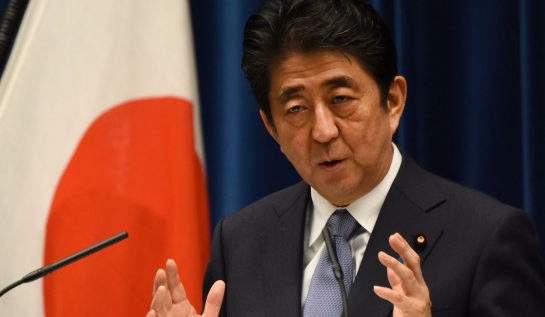Berger in the Media: Abe’s Non-Apology
Thomas Berger, Professor of International Relations at the Frederick S. Pardee School of Global Studies at Boston University, spoke with media outlets after Japanese Prime Minister Shinzo Abe expressed sadness about Japan’s actions in World War II, without fully issuing a new apology on the 70th anniversary of their surrender.
Berger was interviewed by the New York Times for their August 14 article “Shinzo Abe Echoes Japan’s Past World War II Apologies but Adds None.”
From the text of the article:
Thomas Berger, a historian at Boston University, said Mr. Abe’s “sprawling, four-page history lesson” risked giving the impression that he was trying to dilute Japanese responsibility by portraying the war as a “kind of historical tsunami for which no one should be blamed.”
Dr. Berger said that while the statement would be unwelcome in China and South Korea, the amount of damage it might do to relations was hard to predict. It is a particularly delicate time for China’s president, Xi Jinping, who is contending with a slowing economy and a plunge in the stock market.
“China needs Japanese investment in a Chinese economy that is sinking fast,” he said. But it may also seek a scapegoat. “Xi might be tempted to allow the venting of the righteous wrath of the Chinese people against the hated and unrepentant Japanese in order to divert public opinion from domestic problems,” Dr. Berger said.
You can read the entire article here.
Berger also spoke on the August 14 edition of Here and Now on WBUR, telling host Jeremy Hobson that most currently living Japanese people were not alive in World War II, and that Japan ‘cannot go on apologizing forever.’
“You can see an apology there, but it’s framed in such a way that Japan’s responsibility for events is watered down,” Berger said. “There has been a general tendency since the 1980s for leaders to try to address apologies internationally.”
You can listen to the entire program here.
Berger is the author of War, Guilt and World Politics After World War II, Cultures of Antimilitarism: National Security in Germany and Japan and is co-editor of Japan in International Politics: Beyond the Reactive State. Learn more about him here.
